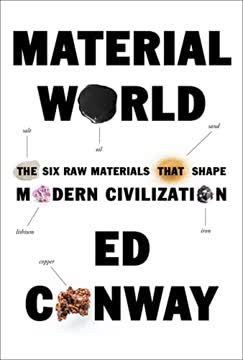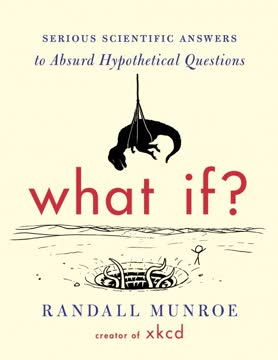Key Takeaways
1. The Great Acceleration: Life is getting faster, driven by technology and culture.
What single quality best defines how our society is changing? ... it is that life is getting faster.
A defining force. Life is accelerating globally, a phenomenon observable in everything from walking speeds in cities to the pace of technological adoption. This isn't just about devices; it's a fundamental shift in the rhythm of society, felt in work, media, and politics. It feels uncontrollable, pushing us to match an ever-increasing tempo.
Chosen acceleration. While stressful, this acceleration is something humanity has actively chosen, hard-wired to crave novelty, speed, and convenience. Faster tempos correlate strongly with economic well-being and prosperity, lifting billions out of poverty. This drive for speed is deeply embedded in our collective behavior.
Key themes emerge. The Great Acceleration brings substantial benefits, though often less dramatic than its costs, and promotes the flashy and superficial while also creating demand for deep immersion. It polarizes systems into large giants and nimble small players, increases unpredictability and fragility, creates reinforcing feedback loops, and distributes benefits unevenly.
2. Our Biology Craves Speed, Novelty, and Instant Gratification.
Our basic biology, in short, programmes us to be fervent, even frenzied consumers of novelty and information...
Wired for speed. Our brains are plastic, constantly rewiring based on experience, and are inherently lazy, seeking efficiency through habit formation. Crucially, they are also "junkies," craving dopamine hits triggered by pleasure, novelty, and anticipation. Technologies like the internet are precision-engineered to exploit this pleasure circuit.
Attention and stress. This constant stimulation leads to fragmented attention, making deep concentration harder and promoting multitasking (which reduces productivity). The mismatch between our Paleolithic stress system and constant modern stimuli keeps us in a perpetual fight-or-flight state, leading to chronic stress, weakened health, and reduced cognitive control.
- Stress shrinks the prefrontal cortex.
- Information overload wears out self-control.
- Time pressure erodes compassion.
Sleep deprivation. The 24/7 lifestyle disrupts our biological clocks, leading to sleep deprivation, which further impairs cognitive function, increases stress, and has long-term health consequences. However, awareness of these effects is growing, and strategies like mindfulness, exercise, and better sleep hygiene offer ways to regain control and mitigate the negative impacts.
3. Acceleration Polarizes Culture and Business, Squeezing the Middle.
What is suffering instead is what sits between fast and slow: products or experiences that are neither instant nor immersive, but in the mushy middle.
Fast vs. slow. Acceleration drives popular culture towards both instant, attention-grabbing content (quick edits, louder music, viral videos) and deep, immersive experiences (long-form TV box sets, lengthy novels). The middle ground – content that is neither instantly consumable nor deeply engaging – struggles to compete for attention.
Giants and flies. In business, technology lowers barriers to entry, fostering disruptive innovation and a "lean" startup culture. However, the advantages of speed and network effects often lead to a "winner-takes-most" dynamic, creating a few dominant giants (like Amazon, Google, Facebook) alongside a horde of small, nimble players. The mid-sized companies are increasingly squeezed out.
Data-driven creation. This environment pushes creators towards relentless innovation and iteration, often guided by data and algorithms (A/B testing, algorithmic music analysis). While this can lead to formulaic, attention-optimized content, it also enables unprecedented levels of creativity and direct connection with audiences, fostering a "Cambrian moment" in cultural production.
4. News and Politics Race Against Time, Prioritizing Speed Over Substance.
By the time the President actually utters something, we’ve chewed it over in anticipation for so long that we’ve already moved on.
Accelerated cycles. The news cycle has moved from 24 hours to near-instantaneous, driven by the demand for real-time updates and the competition for clicks and views. This puts immense pressure on journalists to produce more content faster, often leading to reduced fact-checking and a focus on sensationalism and clickbait.
- Workload for journalists has tripled since 1985.
- Google News algorithms reward speed over depth.
- PRs outnumber journalists.
Information overload. The sheer volume of information and the speed of its spread make it harder to discern truth from falsehood, as seen in the rapid spread of hoaxes during crises. TV news prioritizes constant updates and opinion over in-depth reporting, leading to superficial discussions and a focus on presentation over policy.
Permanent campaign. Politics operates under a "win the minute" mentality, constantly reacting to the news cycle and prioritizing rapid response and media management over strategic thinking and considered decision-making. This leads to "initiativitis," half-baked policies, and a focus on avoiding gaffes rather than addressing complex issues, contributing to public disillusionment.
5. Financial Markets Accelerate to Zero, Increasing Fragility and Short-Termism.
It is not that humans have become any more greedy than in generations past. It is that the avenues to express greed have grown so enormously.
Short-term focus. Financial markets increasingly prioritize immediate profit over long-term investment, driven by "quarterly capitalism" and incentives that reward short-term gains. This leads to underinvestment in R&D and infrastructure, potentially hindering long-term economic growth and contributing to "profits without prosperity."
Race to zero. High-frequency trading (HFT) uses algorithms to exploit tiny price differences at microsecond speeds, creating an arms race for speed and proximity to exchanges. While theoretically increasing market efficiency and liquidity, this system is vulnerable to errors and manipulation ("spoofing," "dark pools").
- HFT accounts for over 70% of US stock trades.
- Firms build direct fiber optic lines for milliseconds advantage.
- Co-location offers authorized insider trading.
Flash crashes. The interconnectedness and speed of algorithmic trading increase the risk of sudden, unpredictable market collapses ("Flash Crashes") triggered by errors or unexpected interactions between algorithms. These events can cascade rapidly, threatening the stability of the wider economy, and their causes are often poorly understood even after the fact.
6. Global Logistics Create a Hyper-Efficient, Yet Vulnerable, Planet Express.
The line between disorder and order lies in logistics.
Movement of goods. The global logistical network, driven by containerization and just-in-time delivery, is a marvel of efficiency, enabling goods to flow across the world rapidly and cheaply. This system is constantly being optimized with technology like RFID tags and self-driving vehicles.
On-demand economy. Consumer demand for instant gratification fuels the growth of hyperlocal delivery services, disrupting traditional retail and potentially transforming urban landscapes by reducing the need for personal car ownership and parking spaces. Self-driving cars promise reduced congestion, fewer accidents, and increased convenience.
Fragility and opacity. While efficient, this vast, interconnected system is also fragile, vulnerable to disruption from single points of failure (e.g., a factory supplying a critical component). The complexity and opacity of global supply chains, involving multiple layers of subcontracting, can hide unsafe practices and make it difficult to ensure ethical sourcing.
7. Accelerated Consumption Strains the Planet, But Innovation Offers Hope.
Clearly, there’s a limit to what the US stomach can hold. But I’ve been predicting we’d reach that limit for the last ten years, and it never arrives.
Growing appetites. Our demand for convenience and novelty extends to food, driving increased consumption of processed foods high in fat, sugar, and salt, contributing to epidemics of obesity and diabetes. The food industry is a "perpetual product machine," constantly innovating to satisfy our changing tastes and maximize profits.
Environmental costs. This accelerated consumption and production model strains the planet's finite resources, leading to:
- Depletion of soil nutrients and water aquifers.
- Loss of biodiversity through monocultures.
- Pollution from factory farming and fertilizers.
- Overfishing of oceans.
- Increased carbon emissions.
Innovation as solution. Despite the problems created by acceleration, technology and innovation offer potential solutions to environmental challenges. Advances in agriculture (GM crops, vertical farming, precision farming), energy (renewables, fusion, efficiency), and materials science could enable us to feed a larger, richer population and mitigate climate change.
8. The Ultimate Acceleration: Technology May Lead to Radical Human and AI Transformation.
Before the prospect of an intelligence explosion, we humans are like small children playing with a bomb.
Exponential tech growth. The acceleration in computing power is poised to transform biology and materials science, enabling genetic editing (CRISPR), synthetic biology, and advanced nanotechnologies with vast potential for medical breakthroughs and new materials. This raises prospects of human enhancement and the creation of artificial life.
Automation and inequality. Capital-biased technological change means computers and robots can perform tasks faster and cheaper than humans, potentially displacing jobs across many industries. This could exacerbate inequality, creating a divide between those who own and leverage technology and those left behind.
The AI frontier. The development of artificial intelligence, particularly self-improving AI ("the last invention"), presents the possibility of intelligence accelerating beyond human comprehension. While offering immense potential, this also poses existential risks if AI goals are not aligned with human values, potentially leading to unintended catastrophic consequences ("paperclip scenario").
Uncertain future. The path forward involves navigating these accelerating technological changes, which promise wonders but also terrors. Our tendency to prioritize immediate gains over future risks makes it likely we will rush into these transformations without fully understanding or preparing for the consequences, making speed the defining and most impactful force shaping our future.
Last updated:
Review Summary
The Great Acceleration receives mixed reviews, with ratings ranging from 1 to 5 stars. Readers appreciate its exploration of how technology and modern life are speeding up various aspects of society. Some find it optimistic and insightful, praising its breadth of topics and interesting facts. Others criticize it for being overly enthusiastic about technological progress, lacking depth in analysis, and failing to address ethical concerns. The book's writing style is described as readable but sometimes slow-paced. Overall, it sparks discussion about the benefits and drawbacks of an increasingly fast-paced world.
Similar Books










Download PDF
Download EPUB
.epub digital book format is ideal for reading ebooks on phones, tablets, and e-readers.




